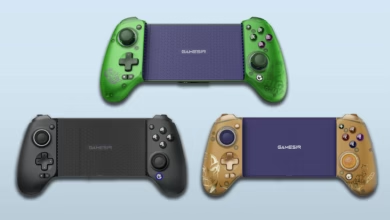Next Xbox Could Double as a Gaming PC

▼ Summary
– Microsoft announced a partnership with AMD for its next-generation Xbox devices, signaling a shift toward more PC-like gaming experiences.
– Xbox is collaborating closely with the Windows team to make Windows the top gaming platform, suggesting the next Xbox may resemble a gaming PC.
– Xbox president Sarah Bond emphasized a vision of playing games across devices and stores, hinting at potential integration with platforms like Steam and Epic Games Store.
– The ROG Xbox Ally X, a Microsoft-Asus collaboration, features a modified Windows version that boots directly into the Xbox App, optimizing performance and usability.
– Microsoft may leverage console-style hardware subsidies to make PC gaming more affordable, potentially attracting new audiences to the platform.
Microsoft’s next Xbox could blur the lines between console and PC gaming, potentially revolutionizing how players experience their favorite titles. Recent announcements reveal the company is collaborating with AMD on future Xbox hardware while emphasizing deeper integration with Windows gaming. This strategic shift suggests the next generation might function more like a specialized gaming PC than a traditional locked-down console.
The partnership signals Microsoft’s continued push toward platform flexibility. Xbox president Sarah Bond emphasized enabling players to enjoy games “wherever they want,” reinforcing the company’s cross-platform philosophy. With initiatives like Xbox Play Anywhere already allowing seamless progress across devices, this new direction could take accessibility even further. Rumors suggest future Xbox hardware might support third-party storefronts like Steam and Epic Games Store, a radical departure from conventional console ecosystems.
Recent hardware experiments support this theory. The ROG Ally X, developed with Asus, runs a modified Windows interface optimized for gaming. By booting directly into the Xbox app instead of a standard desktop, it mirrors Valve’s SteamOS approach while maintaining full PC compatibility. If Microsoft applies similar optimizations to its next console, players could benefit from both console simplicity and PC versatility.
Cost remains a critical factor in this potential transition. Traditional consoles offset hardware expenses through game sales and subscriptions, making them more affordable than equivalent gaming PCs. If Microsoft adopts this model for a Windows-based Xbox, it could provide budget-conscious gamers access to high-performance hardware without typical PC pricing barriers. Given rising GPU costs, such a device might attract new audiences to PC gaming while retaining console convenience.
The gaming landscape continues evolving, and Microsoft appears ready to lead that change. Whether through hybrid hardware or expanded software compatibility, the next Xbox could redefine what players expect from their gaming systems. One thing seems certain: the boundaries between consoles and PCs are becoming increasingly fluid.
(Source: IGN)
